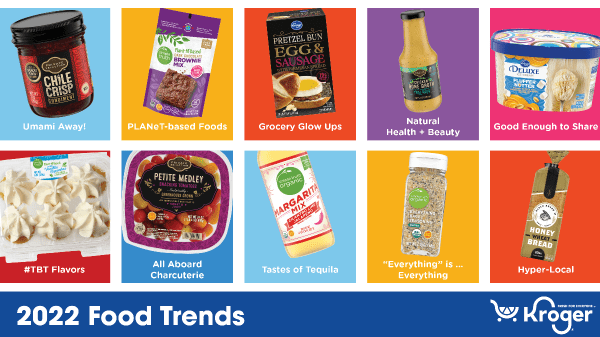
I see from the latest week in review that my colleagues on The Produce Reporter have some issues with recent lists of coming trends, such as Kroger’s. (“Taste of tequila”? How about on your corn flakes?)
Trend lists are, of course, as much of a stock in trade for January as discounted Christmas items.
Why? Because they’re fun. David Letterman’s Tonight Show virtually turned the Top Ten list into a national institution. And everybody loves predictions.

Best-selling author Joe Vitale is coming out with a fascinating new book on promotional writing: Hypnotic Selling Secrets.
I managed to get hold of an advance copy. His insights on this subject are fascinating:
“Here’s a small but important piece of information: the public soaks up prediction articles, not just at the end of the year, when we’re making predictions for the new year. ‘What e-books will sell this year?’ is a prediction. Nobody cares if you’re right. Nobody goes back three months later and checks. It says, ‘Oh, Joe was wrong about those e-books. He mentioned ten that would sell, and only two or nine sold.’
“This is a great way to write a piece of copy. You can write it as a mind-engaging statement: ‘What will happen in the next few months?’ Just fill in the blanks related to your product or service.
Another thing: built into the prediction is an implication of inherent credibility: you are an expert. . . .
“If someone asks, ‘How do you know all these things are going to come true?’ I will reply, ‘I don’t know.’ I’ll take my best shot at it, but nobody knows. That’s the beauty of writing these predictions: it engages everybody, because nobody knows.”
Now you know how it works. I enjoy lists and predictions as much as anyone, but I don’t take them that seriously.
In a recent column, I explained why economic predictions don’t work: they’re based on past trends, but past trends never continue—not exactly enough, anyway.
What about the more far-out predictions—winged beasts from the abyss? Apocalypse always just around the corner?
In 2006 I published an edition of the prophecies of Nostradamus, the celebrated sixteenth-century French magus who is alleged to have forecast every cataclysm that has occurred since his time.
In it I wrote, “I would not base any of my future plans or expectations on anything Nostradamus predicted or is imagined to have predicted.”
That holds across the board. But I will go on reading lists and predictions with as much enjoyment as the next guy.
I see from the latest week in review that my colleagues on The Produce Reporter have some issues with recent lists of coming trends, such as Kroger’s. (“Taste of tequila”? How about on your corn flakes?)
Trend lists are, of course, as much of a stock in trade for January as discounted Christmas items.
Why? Because they’re fun. David Letterman’s Tonight Show virtually turned the Top Ten list into a national institution. And everybody loves predictions.

Best-selling author Joe Vitale is coming out with a fascinating new book on promotional writing: Hypnotic Selling Secrets.
I managed to get hold of an advance copy. His insights on this subject are fascinating:
“Here’s a small but important piece of information: the public soaks up prediction articles, not just at the end of the year, when we’re making predictions for the new year. ‘What e-books will sell this year?’ is a prediction. Nobody cares if you’re right. Nobody goes back three months later and checks. It says, ‘Oh, Joe was wrong about those e-books. He mentioned ten that would sell, and only two or nine sold.’
“This is a great way to write a piece of copy. You can write it as a mind-engaging statement: ‘What will happen in the next few months?’ Just fill in the blanks related to your product or service.
Another thing: built into the prediction is an implication of inherent credibility: you are an expert. . . .
“If someone asks, ‘How do you know all these things are going to come true?’ I will reply, ‘I don’t know.’ I’ll take my best shot at it, but nobody knows. That’s the beauty of writing these predictions: it engages everybody, because nobody knows.”
Now you know how it works. I enjoy lists and predictions as much as anyone, but I don’t take them that seriously.
In a recent column, I explained why economic predictions don’t work: they’re based on past trends, but past trends never continue—not exactly enough, anyway.
What about the more far-out predictions—winged beasts from the abyss? Apocalypse always just around the corner?
In 2006 I published an edition of the prophecies of Nostradamus, the celebrated sixteenth-century French magus who is alleged to have forecast every cataclysm that has occurred since his time.
In it I wrote, “I would not base any of my future plans or expectations on anything Nostradamus predicted or is imagined to have predicted.”
That holds across the board. But I will go on reading lists and predictions with as much enjoyment as the next guy.
Richard Smoley, contributing editor for Blue Book Services, Inc., has more than 40 years of experience in magazine writing and editing, and is the former managing editor of California Farmer magazine. A graduate of Harvard and Oxford universities, he has published 12 books.




